Laos
Three Wheelers in South East Asia
03/05/10
Vientiane, Laos
Jumbo driver waits for passengers in the capital of Laos.
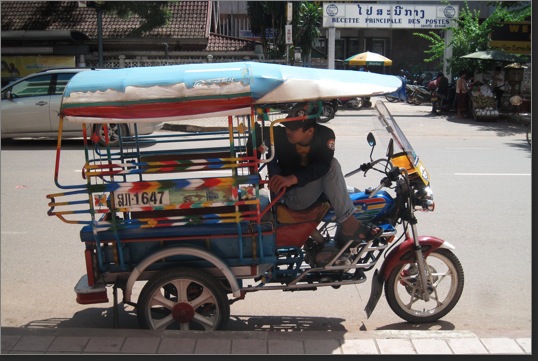
Hanoi, Vietnam
Taking a cyclo is a popular and convenient way of exploring Hanoi Old Quarter.
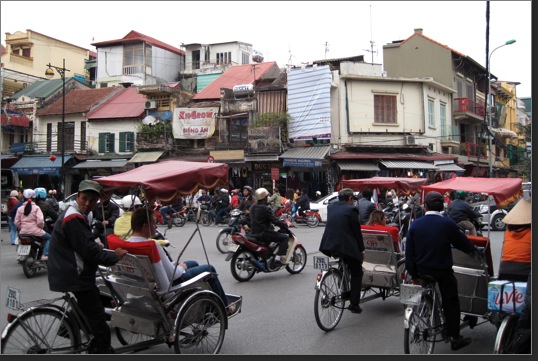
Melaka, Malaysia
Excessively decorated trishaws blasting loud music are impossible to miss in Melaka.
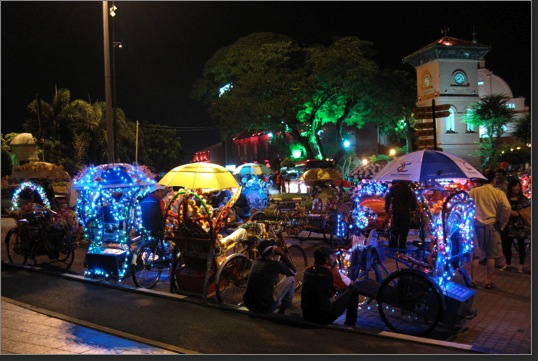
Jumbo driver waits for passengers in the capital of Laos.

Hanoi, Vietnam
Taking a cyclo is a popular and convenient way of exploring Hanoi Old Quarter.

Melaka, Malaysia
Excessively decorated trishaws blasting loud music are impossible to miss in Melaka.

|
Pha That Luang
22/10/09
No trip to Vientiane can be complete without a visit
to the Pha That Luang, a majestic monument with great
religious and historical importance to the Lao
people. Images of the national symbol can be found on
the banknotes, coat of arms and more
recently on the logo of the 25th Southeast
Asia Games which will be held for the first time
in Laos this coming December. The construction
of Pha That Luang began in 1566 by the order of
King Setthatthirat when he moved the capital
from Luang Prabang to Vientiane. The monument
suffered extensive damage during the Thai
invasion in 1828. It was later brought back to
its former glory by two major restorations conducted by the
French in 1900 and between 1931-1935.
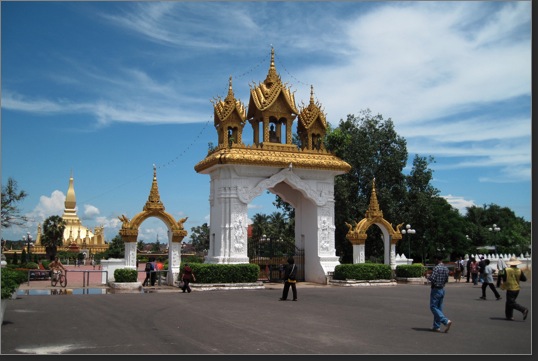
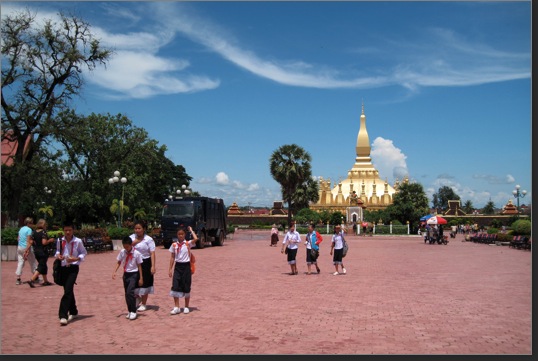
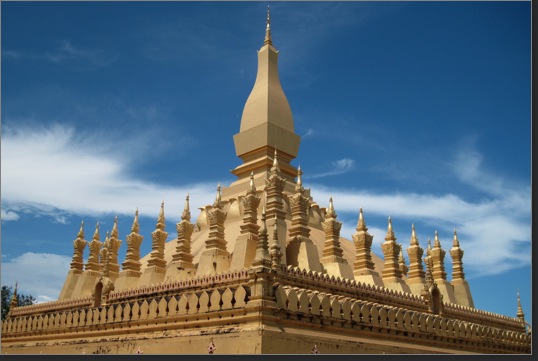
CLICK HERE FOR MORE PICTURES OF VIENTIANE
Related links:



CLICK HERE FOR MORE PICTURES OF VIENTIANE
Related links:
- Wikipedia: Pha That Luang
- Lonely Planet: Pha That Luang
Victory Gate of Vientiane
10/10/09
The Patuxay or Victory Gate
of Vientiane was built in 1962 and
commemorates those who lost their lives in wars. It
is the Arc de
Triomphe of the East to many people. Some also
refer to it as the vertical runway
because the monument is said to be built with the US
fund meant for airport construction. Most
unexpectedly, the official signboard (scroll down for
Picture 3) actually compares the prominent landmark
in the Laotian capital to a Monster of
Concrete. This level of modesty
is unusual and it certainly does not do justice to
the Patuxay. The Victory Gate was formerly known as
the Anaosavali, which
apparently means “memory” or “monument”, before 1975
during the monarchy era.
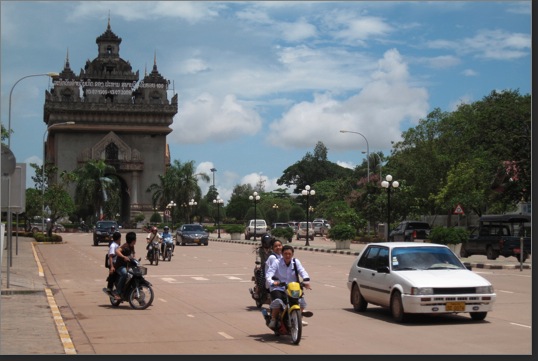
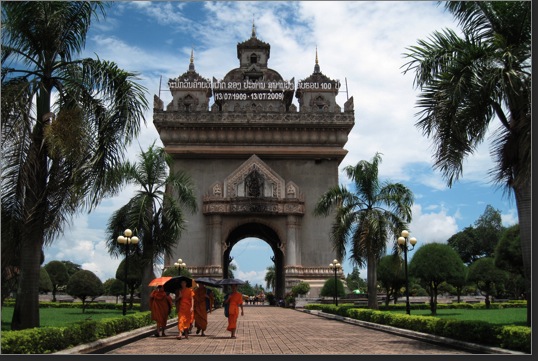
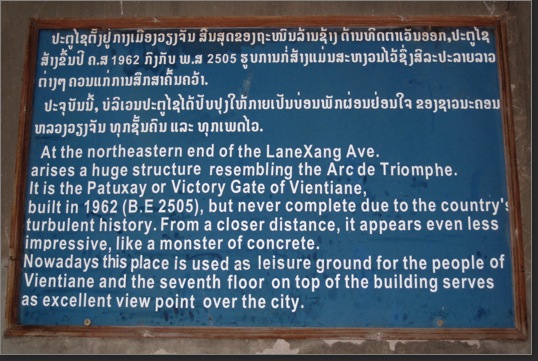
CLICK HERE FOR MORE PICTURES OF VIENTIANE
Related links:



CLICK HERE FOR MORE PICTURES OF VIENTIANE
Related links:
- Wikipedia: Patuxay
- LaoVoices: Patuxay Monument is
expected to draw big crowds
- Vientiane Life: Vientiane Attractions
Spirit City by the Mekong
21/09/09
Spirit City, or Xieng
Khuan in Lao, is the brainchild of Bunleua Sulilat, a religious
figure with interesting role of
yogi-priest-shaman. Built in 1958, the park
features a sizable collection of Buddhist and
Hindu sculptures, some of which appear to be
unorthodox, if not bizarre, in design but there
is definitely no lack of creativity and
artistry. Xieng Khuan is located 24 km
south of central Vientiane and can be reached by
taking a bus (~45 min journey) from Talat
Sao Bus Terminal in the city centre.
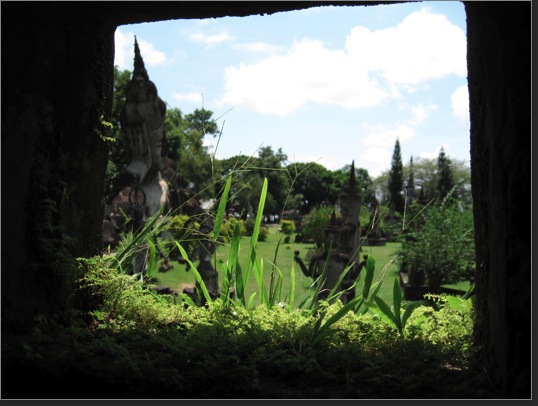
CLICK HERE FOR MORE PICTURES

CLICK HERE FOR MORE PICTURES





